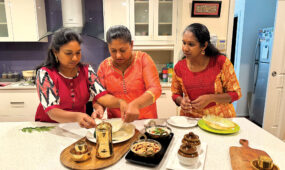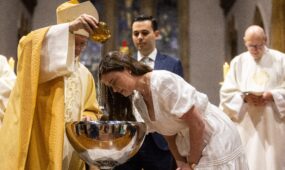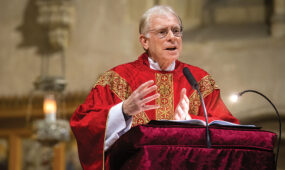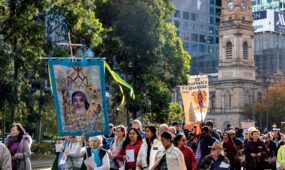Long wait for a voice
Opinion
Lisa Buxton is executive officer of the Aboriginal Catholic Ministry, Sydney. This is an edited version of her address at the launch of the 2023 Social Justice Statement.
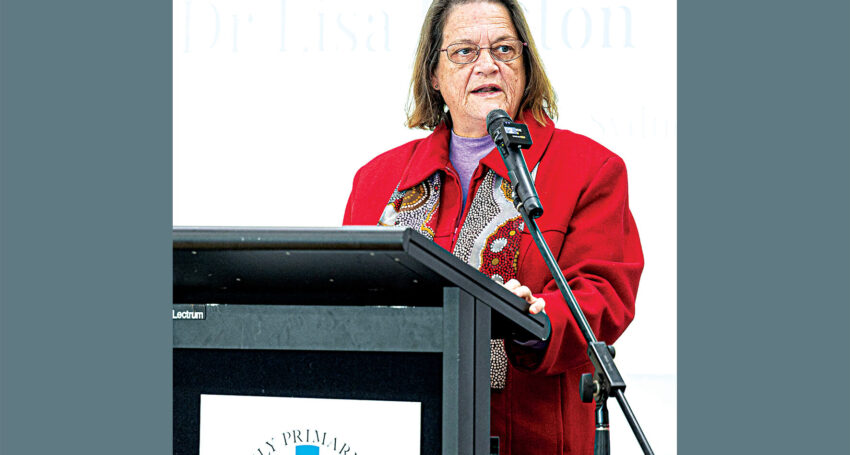
I am a proud Ngandowal woman of Bundjalung with cultural connection to Yugambeh, who has South Sea Islander and English heritage. I was brought up Catholic in cultures of my descent, with two very strong and resilient Grandmothers both devoted to their faith. I am proud of all my family’s cultures and spiritualities.
Why do I mention this? To provide you with information about my cultural location, to place myself in Country. Who my mob is. I have always known I was Aboriginal, growing up on Country, surrounded by family. As a young child my Aboriginality was not discussed, as it didn’t need to be.
Advertisement
I recognise and thank the Australian Bishops Conference for their spirit of love and of humility in allowing NATSICC, our representative body, to speak directly in the statement and share some lived experiences of pain, suffering of injustice and humiliation due to racist attitudes and practices, as well as our commitment to the life of our Church.
So many of the issues reported in the Closing the Gap document are very unlikely to be rectified without a true opening of the door where we listen to the voices of Aboriginal peoples. After 15 years of Closing the Gap reporting only four of the 19 targets are on track, and some of the gaps are getting wider.
We are a patient and resilient mob that knows what will work in our communities. An authentic two-way engagement with our communities is of critical importance, but you can’t have true engagement without a relationship, ‘and you can’t have a relationship without a conversation’ (National Curriculum Services).
The importance of the Uluru Statement is that Aboriginal and Torres Strait Islander peoples initiated the conversation. It is a gift of hope and love that comes from a long history of advocacy for a better future for our children based on justice and self-determination.
The Social Justice Statement states the extensive dialogues across 13 regions of the country. But what is not as well know is that these regional dialogues were made up of 60 per cent Traditional Owners and people with cultural authority; 20 per cent Aboriginal community-based organisations; and 20 per cent Aboriginal leaders, who nominated their representatives to attend the 2017 Constitutional Convention at the base of Uluru.
This seeking of recognition is not something new; it is part of history, a legacy that we are deeply connected to. As Aunty Pat Anderson has said: ‘We have been doing this since 1846, every generation has given this a go. Through thousands of petitions that fell on deaf ears’.
We have been waiting for the Voice for a very, very long time. Throughout history, there have been consistent calls for a representative voice in decision-making, the right to self-determination, treaty, and truth-telling. It is time; we need our voices to be heard and valued.
There are 135,686 Aboriginal and Torres Strait Islander Catholics – we are the youngest and fastest growing sector of the Catholic population in Australia. There are 14 Aboriginal Catholic Ministries in Australia but some take in their whole state which can be exhausting. If we are to truly meet Aboriginal and Torres Strait Islander peoples, where they are at, this number needs to increase and be appropriately resourced.
Advertisement
As Australians we should all celebrate being part of the oldest living culture in the world, whether we have been here for a short time, one or two generations, or 2000 generations. This is no less true for our Church; we should be deepening our understanding of Aboriginal and Torres Strait Islander spiritualities and our expression of spirit within our Catholic tradition.
This recognition needs to go beyond Reconciliation and NAIDOC week as once a year attempts at engaging with Aboriginal and Torres Strait Islander cultures and peoples.
More than 30 years ago, St Pope John Paul II in his address to Aboriginal and Torres Strait Islander Peoples in Alice Springs stated: The Gospel of our Lord Jesus Christ speaks in all languages. It esteems and embraces all cultures…
That Gospel now invites you to become, through and through, Aboriginal Christians. It meets your deepest desires. You do not have to be people divided into two parts, as though an Aboriginal [person] had to borrow the faith and life of Christianity, like a hat or a pair of shoes, from someone else who owns them. Jesus calls you to accept his words and values into your own culture.
Related Story
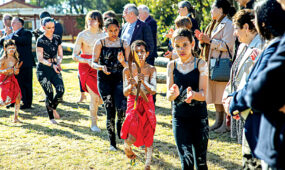 National
National
Call for new engagement with First Nations people
We can not do this in isolation or alone. It needs to be an authentic partnership where all parties have an equal voice. Why are we still asking permission for our gifts to be joyfully received?
As Catholics we are all called to live a practical faith based on Gospel values and our Catholic social teachings. The upcoming referendum is an opportunity for all Australian Catholics to make an informed decision.
This Social Justice Statement shines light on the inequities and generational trauma experienced by Aboriginal and Torres Strait Islander peoples in our communities. The data is clear, but behind each percentage there are individual faces and families who I encounter daily. As Catholics we need to find ways to ensure that the challenging words of this document become a living, practical map for ours and future generations.
We need to be open to learn from Aboriginal ways of seeing, knowing and being, find common ground and using the resilience of communities to walk together on this journey for true reconciliation and the wellbeing of all.


